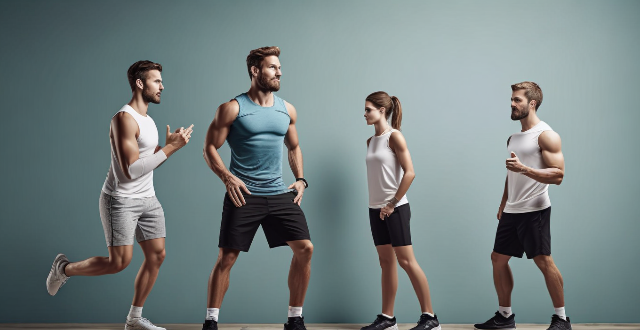Mental Violence

What are the effects of domestic violence on women's mental health ?
Domestic violence has severe and long-lasting impacts on women's mental health, including depression, anxiety, post-traumatic stress disorder (PTSD), and substance abuse. It is crucial for healthcare providers to screen for signs of domestic violence and provide appropriate support services for affected women.

What is the relationship between climate change and gender-based violence ?
The text discusses the correlation between climate change and gender-based violence, emphasizing that they intersect in several ways. It mentions how climate change exacerbates social inequalities, making women more vulnerable to gender-based violence, such as sexual assault and harassment during displacement and overcrowding caused by natural disasters. It also points out the economic impact on women who manage household resources during scarcity, potentially leading to domestic violence due to increased stress and tension. The text further highlights how climate change can reinforce harmful gender norms, affecting men's ability to provide for their families and leading to frustration and aggression towards women. It also notes the impact of climate change on women's access to justice, as legal institutions may be disrupted or overwhelmed by climate-related disasters, making it difficult for women to report incidents of gender-based violence or seek legal recourse. Lastly, it mentions the negative impact of climate change on mental health, which can increase the risk of gender-based violence. The text concludes by emphasizing the need for a comprehensive approach to address both problems, taking into account their intersection and differential impact on various populations, to create a more equitable and just world.

Why is it important to address violence against women as a human rights issue ?
Violence against women is a widespread problem that violates basic human rights and has far-reaching consequences for individuals, families, communities, and society at large. Addressing violence against women as a human rights issue is essential for upholding these basic rights, promoting gender equality, breaking the cycle of poverty and marginalization, and fulfilling our legal obligations under international law. By raising awareness about this issue and working towards creating a world where all individuals can live free from fear and violence, we can help create a more equitable and just society for all.

How do family courts handle cases related to domestic violence and child custody ?
Family courts play a crucial role in handling cases related to domestic violence and child custody, prioritizing safety, investigating allegations, considering the best interests of the child, making custody decisions, and providing ongoing support and monitoring.

How does climate change affect women's health and reproductive rights ?
Climate change has a significant impact on women's health and reproductive rights, including increased risk of displacement, violence, and sexual assault during extreme weather events; food insecurity and malnutrition affecting reproductive health; water scarcity leading to physical injuries and reproductive health problems; air pollution causing respiratory and heart diseases as well as complications during pregnancy; and mental health issues due to stress and fear of violence. It is crucial to take action to mitigate the effects of climate change and protect the health and well-being of all people, especially those who are most vulnerable.

What is the relationship between physical activity, mental health, and peace ?
The text discusses the interconnected relationship between physical activity, mental health, and peace. Regular physical activity can reduce anxiety and depression, improve mood, and enhance cognitive function, which in turn fosters emotional stability, clear thinking, and empathy - qualities necessary for maintaining peace. Sports and group activities promote teamwork, respect for others, and community building, contributing to peaceful interactions. Therefore, understanding these connections can lead to conscious choices that improve individual lives and contribute to a more peaceful world.

Are there any international laws that protect the rights of women ?
The text discusses international laws and conventions established to protect and promote women's rights, including the Convention on the Elimination of All Forms of Discrimination Against Women (CEDAW), the Inter-American Convention on the Prevention, Punishment and Eradication of Violence Against Women, the Maputo Plan of Action, the European Convention on Human Rights (ECHR), and the Beijing Declaration and Platform for Action. These legal frameworks aim to address issues such as discrimination, violence, gender equality, health care, education, and economic resources. The effectiveness of these laws often depends on national governments' commitment to implementing and enforcing them.

How can grassroots sports programs help reduce violence and promote social cohesion ?
Grassroots sports programs play a crucial role in reducing violence and promoting social cohesion by encouraging physical activity, building teamwork skills, providing opportunities for diverse participation, promoting respect and fair play, and offering a safe space for expression. By investing in these programs, we can create stronger, more connected communities where everyone feels valued and supported.

How can personal safety training help prevent sexual harassment and violence in the workplace ?
Personal safety training is crucial for preventing sexual harassment and violence in the workplace. It educates employees on recognizing inappropriate behaviors, understanding reporting procedures, implementing prevention strategies, building awareness, and creating a supportive culture. This training empowers individuals to maintain a safe work environment and fosters a culture of respect and professionalism.

How can educational psychology aid in addressing students' mental health issues ?
Educational psychology can aid in addressing students' mental health issues by understanding the role of emotional intelligence, promoting a positive school climate, providing early intervention and support services, encouraging self-care and resilience, and facilitating collaboration between educators and mental health professionals.

What is the importance of mental health in overall personal well-being ?
The text discusses the importance of mental health in overall personal well-being. It explains how good mental health can lead to better physical health, emotional stability, healthy social relationships, workplace productivity, and an improved quality of life. The article emphasizes the need for prioritizing mental health by seeking professional help when needed, practicing self-care, and engaging in activities that promote good mental health.

Are there specific exercises that help improve mental health ?
Exercises like yoga, meditation, aerobic exercise, resistance training, MBSR, and Tai Chi can help improve mental health by reducing stress, anxiety, and depression symptoms while promoting relaxation, self-awareness, and social interaction.

In what ways does poor personal hygiene impact mental health ?
Poor personal hygiene can negatively affect mental health by causing decreased self-esteem, social isolation, and exacerbating symptoms of mental health disorders. It is important to maintain good hygiene habits for overall well-being.

How does climate change affect children's mental wellbeing ?
Climate change has a significant impact on children's mental wellbeing, leading to anxiety, fear, emotional distress, grief, and loss. However, by educating children about the issue, providing access to mental health services, and building strong communities, we can help mitigate these effects and support children's overall wellbeing.

What impact has the pandemic had on mental health and well-being ?
The COVID-19 pandemic has significantly impacted mental health and well-being, leading to increased stress, anxiety, depression, insomnia, and substance misuse. Factors such as fear of infection, financial instability, social isolation, grief, and disruption of daily routines contribute to these issues. The situation emphasizes the need for accessible mental health services and support systems to address psychological needs during this challenging period.

How does nutrition impact women's mental health ?
Nutrition has a significant impact on women's mental health. Eating a balanced diet with adequate amounts of vitamins, minerals, and nutrients can help improve mental health. Avoiding processed foods and sugary drinks, drinking enough water, eating breakfast regularly, and getting enough sleep are also essential for good mental health. By taking care of their bodies through nutrition, women can take care of their minds.

Can physical activity improve mental health ?
Physical activity has been found to significantly improve mental health by enhancing self-efficacy and stress self-management skills. Research shows that engaging in physical activities can lead to a sense of accomplishment, boosting an individual's confidence in their abilities, which in turn fosters better stress management and contributes to enhanced mental well-being. This relationship is particularly important for adolescents, a demographic vulnerable to mental health challenges. Future research should focus on identifying specific types of physical activities that have a greater potential to enhance these skills, guiding the development of targeted interventions aimed at improving mental health through physical activity.

How does exercise improve mental health ?
The article discusses how exercise improves mental health by reducing symptoms of depression and anxiety, improving mood, and enhancing cognitive function. It highlights the release of endorphins, regulation of neurotransmitters, stress reduction, increased energy levels, better sleep quality, enhanced self-esteem, improved memory and attention, reduced risk of cognitive decline, and promotion of neuroplasticity as mechanisms through which exercise positively impacts mental well-being. The conclusion emphasizes the importance of regular physical activity for overall well-being and advises consulting a healthcare professional before starting any new exercise program.

How does climate change impact mental health ?
Climate change has a multifaceted impact on mental health, including direct effects such as trauma from extreme weather events and environmental degradation, and indirect effects like economic strain and social disruption. Mitigating this impact involves raising awareness, strengthening community resilience, investing in mental health services, advocating for policies that address both climate change and public health concerns, and encouraging sustainable practices.

How can schools improve student mental health ?
Improving student mental health is crucial for academic success and overall well-being. Schools can help by creating a supportive environment, implementing mental health programs, providing access to resources, promoting healthy habits, addressing bullying and harassment, offering extracurricular activities, monitoring academic pressure, and encouraging self-care. By implementing these strategies, schools can create an environment that supports the mental health of all students, allowing them to thrive both academically and personally.

How do competitive sports impact mental health ?
Competitive sports have a significant impact on mental health, with both positive and negative effects. Positive effects include increased self-esteem and confidence, improved social skills and teamwork, stress reduction and relaxation, and goal setting and achievement. Negative effects include pressure to perform, fear of injury, burnout and overtraining, and unhealthy weight management practices. It is essential for athletes to manage the pressures associated with competition and prioritize their mental and physical health above all else. Seeking support from coaches, teammates, friends, and family members can also help athletes navigate the challenges of competitive sports and maintain good mental health.

How does exercise contribute to mental rejuvenation ?
Exercise plays a crucial role in mental rejuvenation by releasing endorphins, improving blood flow, enhancing neuroplasticity, reducing stress, improving sleep quality, facilitating social interaction, and boosting self-esteem. Regular physical activity can significantly contribute to improved cognitive functions, emotional stability, and overall mental well-being.

How can mental toughness be developed in athletes through sports psychology ?
The article discusses the importance of mental toughness in sports and how sports psychology can help athletes develop this quality. It outlines six ways that sports psychologists can assist athletes in developing mental toughness, including goal setting, self-talk, visualization techniques, stress management, mindfulness practices, and team building activities. These strategies can enhance resilience, focus, and motivation in athletes, leading to success in their chosen sport.

How do celebrities manage their mental health amidst hectic schedules ?
Managing mental health is crucial for celebrities with hectic schedules, and they employ various strategies to maintain their well-being. These include prioritizing self-care through exercise, healthy eating, and sleep; seeking professional help when needed; setting boundaries to avoid burnout; building a support system of friends, family, and colleagues; engaging in hobbies and interests for stress relief; and practicing mindfulness and meditation to reduce anxiety. By implementing these strategies, celebrities can maintain good mental health and thrive both personally and professionally.

How much exercise is needed to achieve mental rejuvenation ?
Achieving mental rejuvenation through exercise is a widely discussed topic in recent years, and the benefits of physical activity on mental health are well-documented. However, the question remains: how much exercise is actually needed to achieve these benefits? According to the American Heart Association, adults should aim for at least 150 minutes of moderate-intensity aerobic activity or 75 minutes of vigorous-intensity aerobic activity per week. This can be broken down into 30 minutes of exercise, five days a week. In addition to aerobic activity, it's also recommended that adults engage in muscle-strengthening activities at least two days per week. It's important to listen to your body and adjust your exercise routine accordingly. Practical tips for incorporating exercise into your daily routine include starting small, finding an activity you enjoy, making it a part of your routine, mixing it up, and setting realistic goals. By following these guidelines and tips, you can make exercise a regular part of your life and enjoy the many benefits it brings to both your physical and mental health.

What are the challenges faced by climate refugees ?
Climate refugees face numerous challenges, includingClimate refugees face numerous challenges, including limited access to resources, loss loss of livelihoods, cultural displacement, mental health issues, social exclusion, and security risks. Addressing these challenges requires a comprehensive approach that includes legal protection, access to resources and services, livelihood restoration, cultural preservation, mental health support, social inclusion, and security measures.

How does physical exercise contribute to mental well-being ?
The text discusses how physical exercise contributes to mental well-being by releasing endorphins, boosting self-esteem, improving sleep quality, facilitating social interaction, and enhancing cognitive function. Regular physical activity can lead to long-term improvements in mental health, including reduced stress, anxiety, and depression, as well as better emotional stability and overall mood. Engaging in group sports or exercise classes provides opportunities for social interaction, which is essential for mental well-being, while achieving fitness goals can boost self-esteem and self-confidence. Better sleep patterns from exercise can lead to improved cognitive function and emotional regulation, while enhanced cognition may aid in the management of mental health conditions. Incorporating regular physical activity into your routine can promote mental well-being through these various mechanisms.

What are the benefits of sports for mental health ?
The benefits of sports for mental health are multifaceted and significant, contributing to an individual's overall well-being in numerous ways. The positive impact of physical activity on mental health is well-documented, offering a range of advantages that extend beyond the boundaries of physical fitness. One of the most compelling benefits of engaging in sports is the significant reduction in the risk of depression. Engaging in sports not only aids in combating depression but also helps in reducing anxiety levels. Regular exercise, especially if incorporated as part of a sports routine, can significantly improve sleep patterns. Participating in sports boosts energy levels, making individuals feel more vibrant and alive. Sports provide a platform for individuals to challenge themselves, overcome obstacles, and achieve goals. These experiences can build resilience, an essential trait for maintaining good mental health. Engaging in sports often involves interaction with others, whether as part of a team or through individual competition. This social aspect of sports can provide a sense of community and belonging, which is vital for mental well-being. Through sports participation, individuals can expand their social networks and establish support systems. Having a network of peers who share similar interests and goals can offer emotional and moral support, which is crucial for mental health maintenance. Team sports, in particular, offer opportunities to develop teamwork and communication skills. These skills are transferable to various aspects of life and can enhance interpersonal relationships, contributing to better mental health. Sports provide a structured environment for setting and achieving goals, which can boost self-esteem and a sense of accomplishment. Participating in sports requires discipline and time management, skills that are beneficial both on and off the field. Sports allow individuals to explore their limits and potential, pushing themselves to reach new heights.